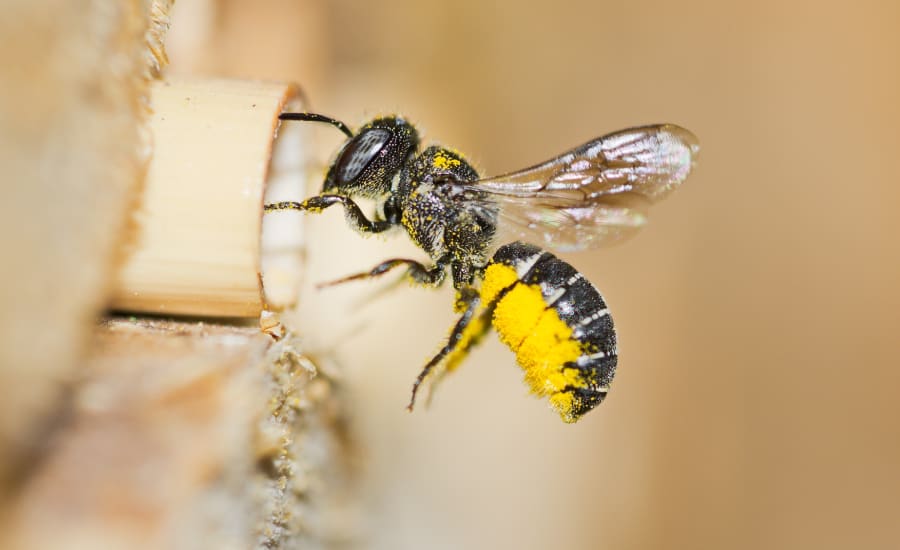The rapid advancement in software and hardware are paving the way for the rise of the silicon brain, a phenomenon that can give rise to thought, behaviour, and emotion in a machine. The implementation of the silicon brain plays an important role in enhancing machine intelligence to solve the complex problems that are plaguing the world right now.
Raised £2.1M
Opteran, a spinout of the University of Sheffield, is one such startup developing low-cost silicon brains. Recently, the UK company raised £2.1 million in seed funding led by IQ Capital with Episode1, Join, and Seraphim Capital also participating.
Following on from a pre-seed round from the Connecting Capabilities Fund of the British Business Bank, the latest funding round also includes angel investors and a CCF grant, a part of the Northern Triangle Initiative.
How will the funding be used?
The company intends to use the funding to pioneer its radical lightweight, low-cost silicon-based approach to autonomy called Natural Intelligence. A part of the funding will be used to build out functionality in the algorithms and chipsets as well including Opteran Sense, Opteran Direct for SLAM, Opteran Decide for autonomous decision-making, and Opteran See – a 360-degree camera.
David Rajan, CEO, Opteran, commented: “2021 will be the year when Natural Intelligence will challenge deep learning in solving some of the most fundamental shortcomings in autonomous applications and this funding round will set Opteran on a path to be at the forefront of this next wave. Already in a position to demonstrate the technology, we are confident that Natural Intelligence will become highly sought after as the way to deliver lightweight, low-cost and effective autonomy in a radically new way that will open up huge growth opportunities for robotics.”
Researched insect brain for 8 years
The Sheffield spinout has researched insect brains for 8 years as part of the Green Brain and Brains on Board projects. According to the company, insects have a smaller brain, but still, they are capable of sophisticated decision making and navigation using optic flow to perceive depth and distance.
Opteran says it is an efficient robust and transparent way to achieve autonomy than current deep learning techniques enabling Opteran to reverse-engineer insect brains to produce algorithms requiring no data centre or extensive pre-training. It means Opteran can mimic tasks such as seeing, sensing objects, obstacle avoidance, navigation, and decision making.
In the recent trial, they were able to control a sub-250g drone, with complete onboard autonomy, using fewer than 10,000 pixels from a single low-resolution panoramic camera.
Wide-range of use cases
Weighing just 30g, and integrating Opteran technology drawing less than a watt of power, the Opteran Development Kit (ODK) will enable the technology to be integrated into a wide variety of applications in the robotics market.
Ed Stacey, partner at IQ Capital says: “We are hugely excited to be working with Opteran, as Natural Intelligence adds a whole new dimension that will transform the way in which we create intelligent machines – starting with the design of more efficient silicon brains for robots and autonomous vehicles. We are delighted to be supporting them at the start of their commercial journey and are excited to see the technology they create and the role it plays in the wider AI market in the years ahead.”
Rob Desborough, Partner Seraphim Space Fund and CEO of Spacecamp comments: “The benefits and step-change Natural Intelligence can bring to the field of autonomy are profound. Within a Space environment, autonomous systems are truly on the edge where size, weight, and efficiency are critical. Opteran has the potential to be the world leader in this area and was an exceptional fit for our Seraphim Space Camp accelerator. Our experience of working with the team gave us the conviction that this was a company that could revolutionise this sector”
Sebastian von Ribbentrop, Partner at Join Capital says: “We are thrilled to back Opteran’s passionate founders, whose strong backgrounds in both academics and business make them poised to pioneer a new domain of brain biomimicry. We’ve already had the chance to introduce the team to global industrial players, and it immediately became clear that the industry is keen to implement their technology. Opteran is driving a paradigm shift in intelligence that is not based on today’s Deep Learning and sophisticated pattern matching, but on replicating nature’s proven blueprints for autonomy.”
Paul McNabb, Managing Partner at Episode 1 Ventures comments: “We know that the next generation of applications will run on the edge – robots, drones, VR/AR – but that today’s brute-force Deep Learning solutions won’t be able to. Taking inspiration from nature, a whole new paradigm for AI is needed – Opteran has it.”

